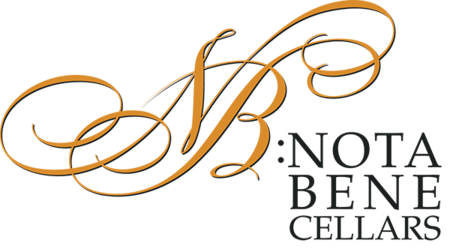The Making
We cannot overestimate the importance of the quality of grapes we choose for our wines. The wine is truly grown in the vineyard, which makes choosing high quality vineyards one of our winemaker’s most important tasks.

Consider that we have been making and studying the wines from Washington State for over 20 years and still find that we have plenty to learn. This is, however, almost a cliché in the wine business here in Washington State when we compare our experience with those of French and Italian winemakers who have been learning the terroir of their vineyards for generations.

Individual small lot fermentations are the way we make :Nota Bene wine stand out from the rest. Managing fermentation is very important to achieving clean fresh fruit in your finished wine. We use 250 Gallon fermenters that provide optimum surface to volume ratios that allow the winemaker to give the yeast the air they need during peak fermentation rates. Lids are removed from the fermenters when fermentation temperatures rise above 75 degrees F. We punch down the cap two or more times daily depending on the rate of the fermentation, with the hotter and cooler fermentations getting the most attention. Nutrient requirements are constantly monitored with our winemaker’s extremely sensitive wine gas analysis tool...his nose...trained to detect minor changes in fermentation chemistry. Our winemaker is religious in his efforts to detect fermentation anomalies. With small lot fermentations, corrections can be made rapidly with precision.

Care in aging and the study of the French history of elevage are equally important for us at :Nota Bene. Our wines are pressed directly to barrel where malolactic fermentation takes place in the presence of oak. We feel that this traditional path to making fine wine is one that should not be interrupted with stainless steel. Lots of new French oak barrels are required to achieve the flavors we like even though this can be painful to our business plan. Nothing takes the place of new oak in aging wines from Washington State.
We are members of the Washington Wine Technical Group, a group of Washington State winemakers that meet several times a year to discuss topics in enology and viticulture We think collaboration is important within the industry and academia. The art and science of wine meets at our seminars thanks to the professors from WSU's Enology and Viticulture department.
In addition, winemaker Tim Narby is a member of ASEV, American Society for Enology and Viticulture. This is a society of winemakers and winegrowers, and academic and industry leaders from all over the world who meet regularly and publish leading edge information.
